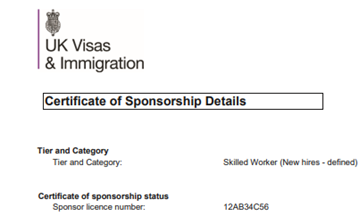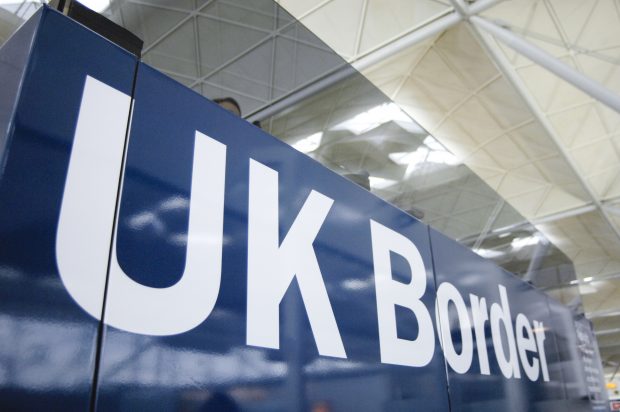UK employers must verify a person’s right to work before employment starts. That means checking someone’s immigration status, recording the result correctly, and—where permission is time-limited—doing follow-up checks on time. Done properly, you gain a statutory excuse against civil penalties and reduce the risk of sponsor licence enforcement.
This guide explains every compliant route—online checks with a share code, digital checks via IDSP/IDVT, manual checks, and the Employer Checking Service (ECS)—plus how often to re-check, what to do when evidence isn’t available, and special rules for EU, EEA and Swiss citizens.
How to Conduct a Right to Work Check
Choose the route that matches the document/status the person can provide.
How to check someone’s immigration status online (share code)
This is the fastest and most secure route for non-British/Irish candidates.
Steps for employers
- Ask for a Right to Work share code (should begin with “W”) and date of birth.
- Enter details in the Home Office “View a job applicant’s right to work details” service.
- Confirm:
- The photo matches the person you met (in person or live video).
- Type of permission, expiry date, and any work restrictions (hours/occupation/CoS-linked).
Record-keeping (statutory excuse)
- Save a clear screenshot or PDF of the results page.
- Date-stamp the check.
- Store securely for the duration of employment + 2 years.
If you’re a sponsor, align evidence with your sponsor management system (SMS) files and the assigned certificate of sponsorship (CoS).
Digital checks via an IDSP (IDVT)
You can outsource checks for British & Irish citizens with valid passports to a certified IDSP using IDVT. You still remain responsible for compliance—verify the identity result matches the person and retain the evidence.
How to check immigration status manually
Use a manual check if online/digital isn’t applicable.
Three required steps
- See original documents from List A or List B (per GOV.UK).
- Check validity: tampering, name/DOB consistency, facial likeness, permission type & expiry, and work restrictions (incl. student hours).
- Copy & retain: make clear, unalterable copies; record the check date; store for employment + 2 years.
Automate Home Office Audits with Borderless
The Borderless platform provides a centralized system for all sponsorships, automating reminders for key tasks and ensuring best practices across your organization, simplifying audit preparation and ongoing compliance.
When the person cannot prove status (ECS)
Use the Employer Checking Service if the individual:
- has a pending in-time application/appeal/administrative review;
- holds a Certificate of Application stating “ask the Home Office to check”; or
- presents an Application Registration Card that permits the role.
A Positive Verification Notice (PVN) provides a time-limited statutory excuse (typically 6 months). File it with the RTW evidence.
How often to re-check?
- Unlimited permission (e.g., ILR, EUSS Settled): no repeat check.
- Time-limited permission (e.g., Skilled Worker, EUSS Pre-Settled): follow-up check before expiry.
- Sponsored role changes: after UKVI approval, complete a fresh RTW check (ensure the correct SOC code and update any change of circumstances in SMS).
What happens if you don’t check?
- Civil penalties per illegal worker (significant fines).
- Potential criminal liability where you know or have reasonable cause to believe someone has no right to work.
- Sponsor action: downgrade, suspension, or sponsor licence revocation.
- Reputational harm and contract loss.
Protect yourself with clear processes, training, and robust SMS governance. See Sponsor Licence Duties & Compliance.
EU, EEA & Swiss citizens
- Since 1 July 2021, (except Irish citizens) EU/EEA/Swiss nationals must show digital status (EUSS or visa).
- They cannot rely on an EU passport or national ID card alone.
- For EUSS, checks are digital using a share code.
- No retrospective checks for staff hired before 1 July 2021 where checks were correct at the time.
Practical tips to stay compliant (and fast)
- Build one RTW workflow in your ATS/HRIS; centralise evidence.
- Use automated reminders for follow-up checks near visa expiry.
- Align offers for sponsored roles to the right SOC and the Immigration Salary List rules.
- Forecast costs with our visa fees calculator (includes government fees and employer levies like the Immigration Skills Charge).
- Train hiring teams to spot invalid/expired share codes; use ECS when evidence isn’t available.
- Maintain clean sponsor licence records to avoid audit pain.
FAQs — checking someone’s immigration status
What is a share code?
A 9-character code the individual generates so you can view their status online. See our share code guide.
Can I check status without a share code?
Yes—use a manual check (acceptable physical docs). If neither is possible, use ECS.
Do I need to re-check everyone?
Only if permission is time-limited (e.g., Skilled Worker, EUSS Pre-Settled).
Does an online check give a full defence?
Yes—if you match identity correctly and retain the results page with the check date.
What if a worker’s visa is expiring?
Remind them early. If they submit an in-time extension, use ECS to maintain your statutory excuse.
How Borderless helps
Borderless streamlines Right to Work and sponsorship compliance:
- Automated share-code collection & follow-up reminders
- Centralised, audit-ready record-keeping
- Sponsor licence workflows across SOC/CoS/SMS
- Costing tools: visa fees calculator and Immigration Skills Charge insights
👉 Get in touch to simplify checks and protect your licence.






